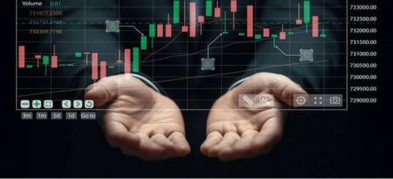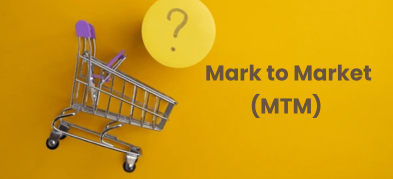
Ultima Markets App
Trade Anytime, Anywhere
Important Information
This website is managed by Ultima Markets’ international entities, and it’s important to emphasise that they are not subject to regulation by the FCA in the UK. Therefore, you must understand that you will not have the FCA’s protection when investing through this website – for example:
- You will not be guaranteed Negative Balance Protection
- You will not be protected by FCA’s leverage restrictions
- You will not have the right to settle disputes via the Financial Ombudsman Service (FOS)
- You will not be protected by Financial Services Compensation Scheme (FSCS)
- Any monies deposited will not be afforded the protection required under the FCA Client Assets Sourcebook. The level of protection for your funds will be determined by the regulations of the relevant local regulator.
Note: Ultima Markets is currently developing a dedicated website for UK clients and expects to onboard UK clients under FCA regulations in 2026.
If you would like to proceed and visit this website, you acknowledge and confirm the following:
- 1.The website is owned by Ultima Markets’ international entities and not by Ultima Markets UK Ltd, which is regulated by the FCA.
- 2.Ultima Markets Limited, or any of the Ultima Markets international entities, are neither based in the UK nor licensed by the FCA.
- 3.You are accessing the website at your own initiative and have not been solicited by Ultima Markets Limited in any way.
- 4.Investing through this website does not grant you the protections provided by the FCA.
- 5.Should you choose to invest through this website or with any of the international Ultima Markets entities, you will be subject to the rules and regulations of the relevant international regulatory authorities, not the FCA.
Ultima Markets wants to make it clear that we are duly licensed and authorised to offer the services and financial derivative products listed on our website. Individuals accessing this website and registering a trading account do so entirely of their own volition and without prior solicitation.
By confirming your decision to proceed with entering the website, you hereby affirm that this decision was solely initiated by you, and no solicitation has been made by any Ultima Markets entity.
I confirm my intention to proceed and enter this website Please direct me to the website operated by Ultima Markets , regulated by the FCA in the United KingdomWhat is the Hong Kong Stock Exchange
The Hong Kong Stock Exchange (HKEX) is one of the most active financial markets in the world, connecting mainland China with international capital markets and attracting many international companies to list.
This article will use real data and actual cases to give you an in-depth look at the core operations of the Hong Kong Stock Exchange, as well as how to participate in HKEX trading effectively through Ultima Markets.
Core structure and positioning of the Hong Kong Stock Exchange
The Hong Kong Stock Exchange was established in 2000 through the merger of the Stock Exchange, the Futures Exchange, and the Clearing House. According to official 2023 data, the average daily trading volume of HKEX reached HK$135 billion, placing it among the world’s leading exchanges and underscoring its international market status.
HKEX currently has more than 2,600 listed companies, including well-known names such as Alibaba, Tencent, and Xiaomi. Through the “Stock Connect” mechanism, HKEX attracts the flow of capital between mainland China and international investors, fostering a prosperous market environment.
HKEX trading mechanism and market hours
The Hong Kong Stock Exchange trades from Monday to Friday, from 9:30 AM to 4:00 PM. The market is divided into a pre-opening session (9:00–9:30) and a continuous trading session (9:30–12:00, 13:00–16:00). Trading methods include auction orders, limit orders, and conditional orders.
In 2023, HKEX implemented a volatility control mechanism to prevent abnormal fluctuations. Last year, this mechanism was triggered 240 times, averaging about once per day, effectively reducing risks for investors.
HKEX listing requirements and case studies
Companies wishing to list on HKEX must meet specific requirements:
| Listing Requirement | Specific Requirement |
| Minimum Market Capitalization | HK$500 million |
| Operating Record | At least three years of continuous profitability |
| Number of Shareholders | No fewer than 300 |
For example, Kuaishou Technology (1024.HK) was listed on HKEX in 2021, raising HK$42 billion in its IPO and becoming one of the largest new listings of the year. Its stock price rose by 160% on the first day, demonstrating HKEX’s strong capital attraction capabilities.
How to invest effectively in HKEX
HKEX offers a diverse range of products, including stocks, ETFs, REITs, and derivatives. Investors can participate in the Hong Kong stock market through CFD trading on Ultima Markets, using flexible leverage to seize opportunities even with limited capital.
For example, in 2023, Semiconductor Manufacturing International Corporation (SMIC, 0981.HK) saw its stock price increase by 30% for the year due to the semiconductor industry’s recovery. Through Ultima Markets’ HKEX CFD trading, investors can flexibly adjust leverage to effectively control risk and amplify potential returns.
New investors can use demo accounts to become familiar with the trading environment and master trading techniques without risk.

Advantages of investing in HKEX through Ultima Markets
Investing in HKEX through Ultima Markets offers the following unique advantages:
- Provides real-time quotes for Hong Kong stocks, helping investors stay on top of the latest market trends
- Flexible leverage options to meet the needs of investors with different risk appetites
- Instant Chinese-language customer support to address trading questions
- A stable trading platform with fast and efficient order execution
Investors can open a trading account immediately and experience professional services.
Frequently asked questions about investing in the Hong Kong Stock Exchange
Q: Is there a stamp duty when trading stocks on the Hong Kong Stock Exchange?
A: Yes, both the buyer and seller of Hong Kong stocks need to pay a 0.13% stamp duty, calculated based on the actual transaction amount.
Q: Is there a minimum trading unit for HKEX trades?
A: Yes, the minimum trading unit is called a “board lot,” which varies by stock. For example, the board lot for Tencent Holdings is 100 shares.
Q: How can I view company announcements for HKEX?
A: Investors can use the HKEX’s official “HKEXnews” platform to check real-time company announcements and financial report updates.
Q: Is trading Hong Kong stock CFDs on Ultima Markets secure?
A: Yes, it is secure. Ultima Markets is regulated by ASIC in Australia, and client funds are held in segregated accounts with independent custodial banks to ensure safety.
Conclusion
As Asia’s financial hub, the Hong Kong Stock Exchange offers abundant investment opportunities.
By trading Hong Kong stock CFDs through Ultima Markets, investors can access real-time market information, flexibly adjust leverage, and effectively manage risks while capturing potential returns.
Whether you are a beginner or an experienced investor, you can easily participate in the Hong Kong Stock Exchange through Ultima Markets.
Disclaimer: This content is provided for informational purposes only and does not constitute, and should not be construed as, financial, investment, or other professional advice. No statement or opinion contained here in should be considered a recommendation by Ultima Markets or the author regarding any specific investment product, strategy, or transaction. Readers are advised not to rely solely on this material when making investment decisions and should seek independent advice where appropriate.












